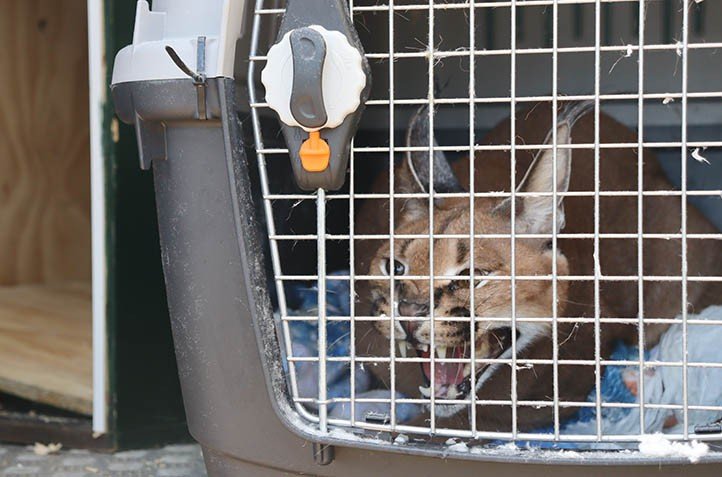African Lynx Seized from a Marbella Residence
The Civil Guard has seized an African lynx, also known as a caracal, from a residential garden in Marbella. The owner of the animal was unable to provide legal proof of its origin, as the species is listed as threatened. The feline, named Jakar, has been relocated to an exotic mammal rescue center in Alicante.
Joint Operation by Civil Guard and Ministry for Ecological Transition
The operation was carried out by the Civil Guard in collaboration with the General Subdirectorate of Terrestrial and Marine Biodiversity of the Ministry for the Ecological Transition and Demographic Challenge. The alert was raised by a neighbor who informed the Civil Guard’s Nature Protection Service (Seprona) about the presence of a lynx in a Marbella residential garden.
Escaped Lynx Weighing 20 Kilograms
The animal, weighing 20 kilograms and potentially dangerous, had escaped from another house about 20 kilometers away. Upon arrival, the nature protection specialists confirmed that it was a caracal, a species threatened according to the Convention on International Trade in Endangered Species of Wild Fauna and Flora (CITES).
Irregular Acquisition and Transport of the Lynx
The Civil Guard located the owner and discovered that the animal had been irregularly acquired and transported by air in 2022 from Moscow, declared upon entry into the country as a domestic cat. Unable to prove its legal origin due to the lack of a CITES import permit number, the officers filed an administrative complaint for the alleged infringement of the Smuggling Repression Law in accordance with the said convention.
Rescue and Relocation of Jakar the Lynx
Jakar, the lynx, about two and a half years old, was captured by specialized personnel from the Marbella City Council’s Veterinary Health team. The animal has been handed over to the “AAP Primadomus” exotic mammal rescue center in the province of Alicante, which has the appropriate characteristics and capabilities for its care.
Investigation Continues for Possible Wildlife Crime
This animal’s natural habitat is in Asia and Africa, and it is protected by CITES legislation related to the protection of wildlife species through the control of their trade. The operation was carried out by the Civil Guard’s Nature Protection Service in Malaga, which keeps the investigation open in case the facts could constitute a crime against wildlife for the acquisition and possession of a protected wildlife species.



